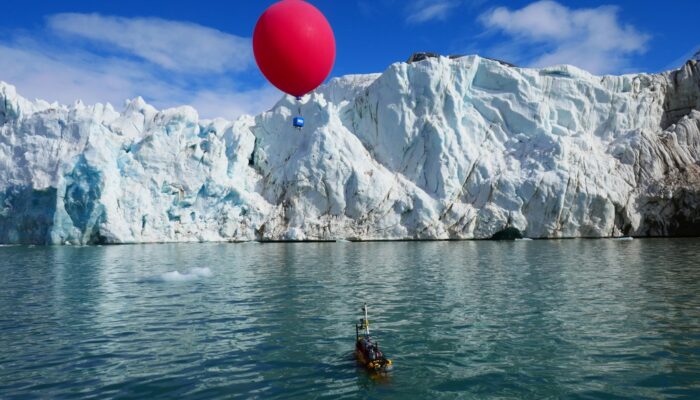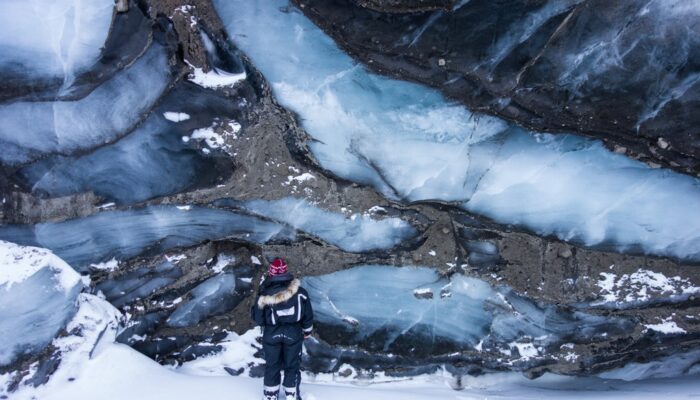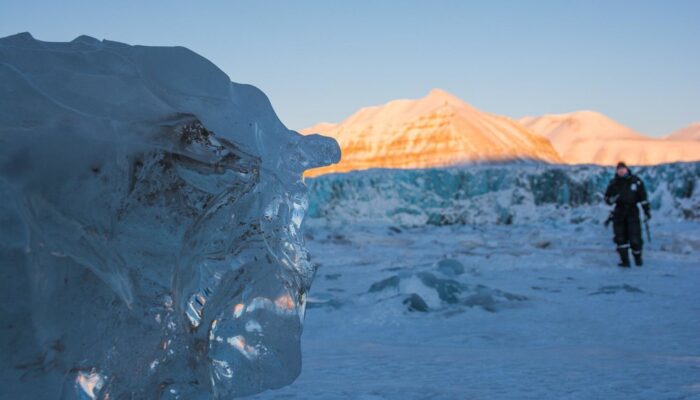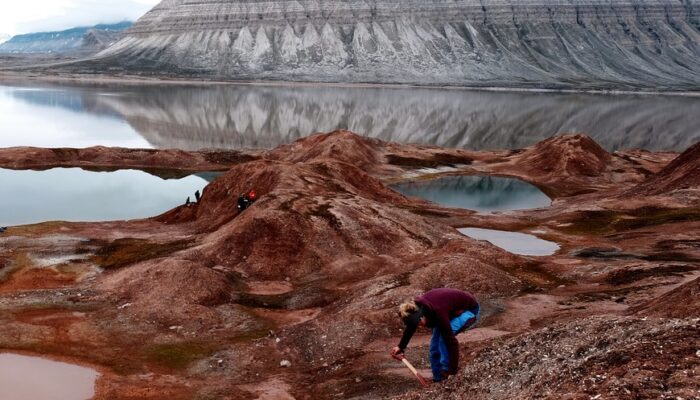This picture was taken in the Arctic in May 2018. It shows the unmanned marine vehicle Proteus in front of the tidewater glacier Conwaybreen in the Kongsfjorden in Spitsbergen in the Svalbard Archipelago. The front of tidewater glaciers is an almost vertical wall of ice standing over the sea where direct measurements are very critical due to the possibility of sudden fall of enormous blocks of ice ...[Read More]
Imaggeo on Mondays: Robotics at the service of the polar science




